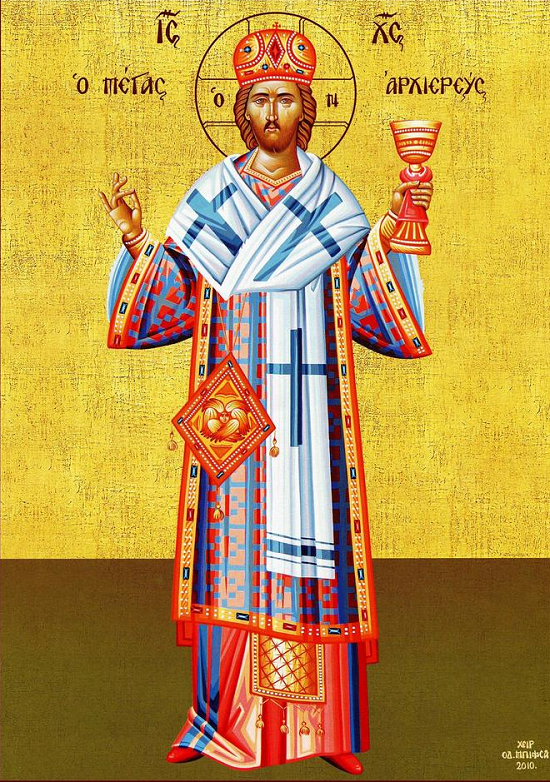Scripture Readings

The world can be a cruel and unforgiving place, rife with violence and injustice. Humanity can be collapsing into futility, driven by ignorance and falsehood. Fatalistic despair seems to be the only rational response to the human condition. All of this is true if—and only if—you believe that it’s up to you to make it different. What happens when you set out to change the world? Frustration because the world doesn’t want to be changed. What happens when you want people to be different? Futility because when you push them, they push back. When you try to help them—with the best of intentions, of course—they try to hurt you. Life is cruel, it’s unforgiving, it’s unjust. People don’t understand how hard you work to make life better for them. You’re misunderstood. You’re victimized by the very people you want to liberate. Indeed, no good deed goes unpunished.
Why is this? Why does it seem that everything you try to accomplish with all your heart and soul and mind and strength yields only futility and frustration? If only you had more power. If only you were stronger, wiser, richer, more knowledgeable, more resourceful. But you’re not. If only you had more control of things, everything would be different. But you don’t. The problem doesn’t lie with the world or with humanity. The problem lies with you. As you struggle to make a difference, you come face-to-face with your own powerlessness. Yet, you refuse to acknowledge it. Deep down, you believe that you have the power to change things, but outside forces are hindering you. You imagine yourself to be a victim of circumstance—bad luck or bad people—instead of facing reality. You are not all-powerful.
If there is a God, it’s God who gives purpose, direction, and meaning to life. That isn’t your job. You lack the qualifications. If there is no God, then life, the universe, and everything is directionless, purposeless, and meaningless. Even if you could change things, it wouldn’t make any difference anyway. Resentment is the only possible human reaction to a meaningless existence.
Yet, something deep inside us rebels against the idea of a meaningless world, spawning the insane notion that somehow, we can control our destiny and, by extension, our world. How do we go about finding the meaning we instinctively know is there, but are powerless to create?
Resigning as general manager of the universe is the only way we can restore meaning to our lives. That means simply acknowledging our own powerlessness. Doing that deprives us of nothing but the power and responsibility that were never ours to begin with.
This revolutionary change from meaninglessness to meaningfulness is a tiny—almost insignificant—paradigm shift. We need only change our minds from resentment for what isn’t to gratitude for what is. That’s what our Scriptures mean by metanoia—a change of mind and heart. It’s also often called repentance. This shift in perspective is the essence of the gospel that Jesus preached: repent—change your mind—and acknowledge that you aren’t in charge. All you need to know about God is that it isn’t you.
Today we celebrate the Solemnity of the Body and Blood of Christ, our annual acknowledgement of the Eucharist. How does what I’ve been saying fit in with this celebration? The good news—the gospel—of the Eucharist is that we are debtors. Eucharist, ἐυχαριστεν (eucharistein), means to give thanks, to live in gratitude. Gratitude is the recognition that we’re recipients, and not self-sufficient. We’re debtors to the universe and to that Power that gives it its purpose, direction, and meaning—a power that we don’t possess. Gratitude means humility. Without the humility to recognize and accept our indebtedness, there can be no gratitude.
In the Eucharist, in our rites of thanksgiving, we acknowledge a Power greater than ourselves, a Power capable of rescuing us from the futility of our struggle to control everything, and the insanity of imagining that we could be in control of our own lives and even the universe. Gratitude restores us to sanity. Once we’ve had our metanoia and our eyes are opened to a reality greater than the one that imprisons us, we can begin to see that there is a living Power that moves in all reality. Gratitude opens us to aligning ourselves with that Power and to allowing it to give meaning and purpose to our lives. What’s more, it’s a living Power capable of overcoming futility and of steering us safely through the gates of death. The resurrection of Jesus from the dead—in whatever form that took—is a foretaste and promise of exactly that.
For the ancient Hebrews—the cultural context that gave birth to our understanding of all this—the body, the flesh, means far more than mere meat. It expresses a personal identity—that which makes each of us unique and different from every other individual who has ever lived or ever will. Likewise, for them, the blood is more than the liquid coursing through our veins. It expresses life itself. They understood that life is in the blood. At the Last Supper, using the Passover ritual that celebrated the crossing over from slavery to freedom, from death to life, Jesus gave his disciples a share in his unique existence in the form of the bread of affliction and the cup of blessing. He commissioned his disciples to share his living identity with one another and with us.
That’s what we’re doing here this morning. As humble and grateful women and men who recognize both our dependence on a Power greater than ourselves and on one another, we rejoice to have a share in that Power that steers our universe and our lives—a Power only visible to those with truly grateful hearts, to those who live in Eucharist.
Get articles from H. Les Brown delivered to your email inbox.
